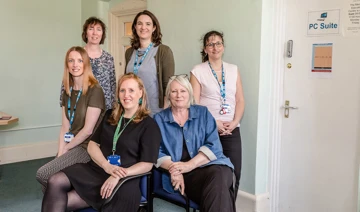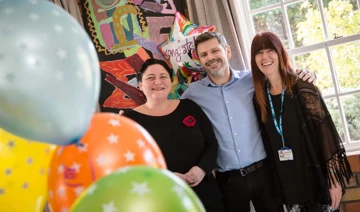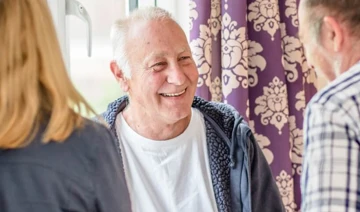A journey through a Clinical Associate in Psychology (CAP) apprenticeship
Date added: 05 February 2024
I am proud to be a member of KMPT’s first cohort of apprentices/Masters of Science in Clinical Associate in Psychology (MSc) and even prouder to be working alongside my colleagues as part of the trust’s Low Secure Forensic Services.
My professional interest in psychology started in my teens at Dartford Grammar School for Girls, where I took psychology in GCSE and A-Levels. I was fortunate enough to be selected for my top choice of university, the University of Leeds, and completed a British Psychological Society (BPS) accredited psychology degree. Top tip: be sure to complete relevant voluntary and paid positions from the very start of your career.
After achieving a 2:1 in my undergraduate degree, I applied for many, many Assistant Psychologist jobs before securing a role in a Low Secure Forensic service specialising in Learning Disability in Kent. During my three-year service I rotated between the inpatient, community and autism diagnostic services.
After working in the private sector, I started my career with the NHS – once you have had one Assistant Psychologist job, it is much easier to find another! I was part of KMPT’s Community Mental Health Team in Dover for six months before applying to the Clinical Associate in Psychology course at the University of Kent. Top tip: I researched the psychologists as I was provided with their names beforehand to try and find out more about them and to include their expertise into my answers!
My fellow Masters level apprentices also worked at KMPT so comradery was great, especially as the majority of our week was spent in the workplace, supported by weekly face-to-face teaching on campus. Ours had the largest number of Knowledge, Skills and Behaviours (KSBs) at 119 compared to other apprenticeships at this level. This may sound daunting but a lot of the competencies overlap and many can be achieved by doing one thing which contributes to more than one KSB. Our dedicated mentors were on-hand to help us navigate our work/university/life balance.
One of the best parts of the apprenticeship/Masters is completing a Quality Improvement Project (QI) within your service – it’s a great opportunity to think about areas of improvement whilst demonstrating your research knowledge.
Another personal achievement was winning an award for the Clinical Associate Psychologist of the Year during the Apprenticeship Awards at the University of Kent. It was such an honour to be nominated and receive the award on behalf of the cohort; a sense of joy and recognition of my work was noted and it was nice to know that it was not purely based on grades.
Being a CAP means I benefit from being trained to work in our services from the start of the course. We can gain in-depth knowledge into our service, work with specific populations (so for me I get to combine both Clinical and Forensic which is not often the case) and can provide a proscribed range of activities. Rather than providing the usual prescribed treatment, we look at the patient as a ‘whole’ and think about how best to help them by working more collaboratively with healthcare professionals.
My career plan is to develop in my current field at KMPT – I love the fact that there are so many opportunities to progress and look forward to working collaboratively in the NHS to bridge the gap between people accessing psychological therapies.
Find out more about Clinical Associate in Psychology (CAP) apprenticeships: KMPT | Celebrating KMPT’s first home grown Clinical Associate Psychologists!



